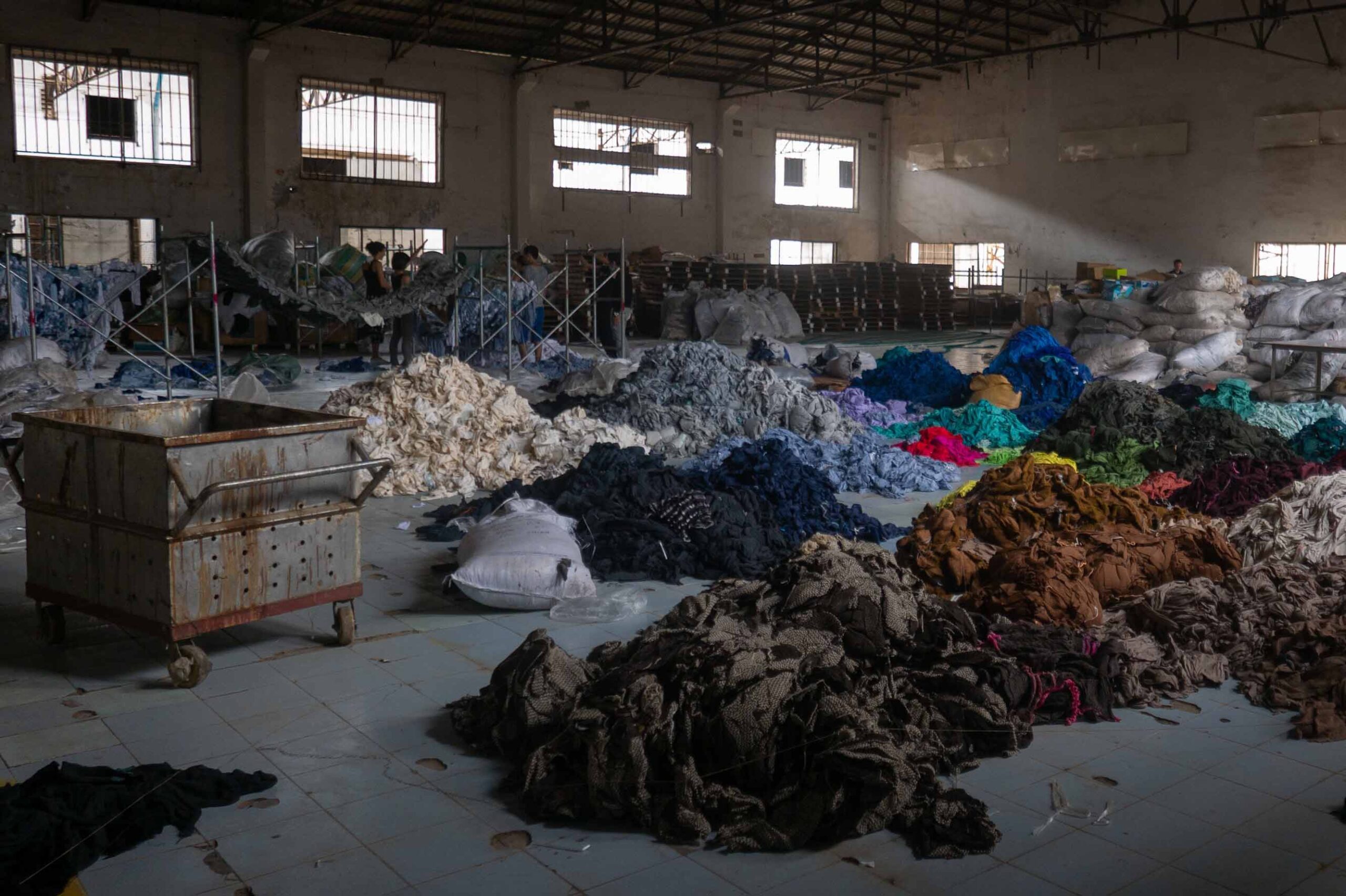by Torsten Becker & Valerie Muschik
In Part 1, we highlighted the importance of ecological banks as a contact point for investors who want to make a positive (or at least reduce their negative) impact. But what is actually the problem with many conventional banks? How is the money in our bank accounts harming the environment? And (why) isn’t current regulation around sustainability putting a stop to those harmful practices? In Part 2 we discuss why the financial sector as a whole still has a long way to go on the path to sustainability.
A bad joke?
The world’s 30 largest financial institutions have invested over USD 740 billion in the oil and gas sector in the past two years. In addition, they hold over USD 222 billion in shares in these companies. None of these financial institutions have internal guidelines for financing fossil fuels, which would be necessary to achieve a climate-neutral scenario according to the International Energy Agency (IEA) and the Intergovernmental Panel on Climate Change (IPCC). All of these financial institutions are members of industry associations that lobby against climate policy. And yet 97% of these financial institutions have “committed” to contributing to a climate-neutral world (Net Zero) by 2050. That’s the conclusion of the independent think tank Influence Map, which regularly analyses the influence of the (financial) industry on the climate crisis.

Just kidding…
…is also the title of Prof. Michael Grote from Frankfurt School of Finance & Management in his latest publication on “the role of the capital markets in saving the planet”. The positive environmental impact of ESG investing is simply exaggerated – if not completely misleading. We can’t wait any longer for capital markets to make the world more sustainable. In an interview with German n-tv, Grote does not necessarily accuse the financial sector of actively deceiving investors; rather, they would be left in mistaken belief about the actual added value of their investment.
However, there are also more far-reaching allegations. Greenwashing on a large scale is the name of a study published at the end of 2021 by Finanzwende Recherche. The research network examined over 300 mutual funds and ETFs with a volume of around EUR 100 billion that were advertised as “sustainable”. Result: Neither harmful sectors nor particularly problematic companies are left out. Oil companies such as Shell, ExxonMobile, BP, Chevron and Total are represented in almost all portfolios. Amazon shares continue to be a popular investment, with “sustainable” funds having purchased them for over EUR 400 million since 2019. As a reminder: ESG also stands for social responsibility and exemplary corporate governance.
In addition, there are wake-up calls and accusations from the industry itself. Tariq Fancy, formerly responsible for sustainable investing at BlackRock, calls ESG Investment a “dangerous placebo” because the industry was allowed to define its own criteria with a lot of leeway. Desiree Fixler, former head of ESG at Deutsche Bank subsidiary DWS, publicly accuses her old employer of greenwashing.
The impact or added value of many investment products labelled as ESG or sustainable – in the sense of a positive impact on climate and environment – is therefore close to zero. Perhaps the solution is simply to explain to the financial industry that this is not what “Net Zero” means? Just kidding.
The bitter truth
While the “Net Zero commitment” of many banks is purely lip service (company level), a number of so-called ESG funds and other “sustainable” investment products are simply fraudulent labelling (product level). By misleading investors who deliberately choose an ESG fund for their portfolio in the belief that they are doing “something good”. But also, by deception of ordinary bank customers who only have a simple current account and who may trust that their bank will handle their money responsibly – that is, in an environmentally and socially responsible manner in accordance with the commitments it has made.
Disclosure requirements and transparency?
How is all that possible? Isn’t that forbidden? Where are ECB, EU, BaFin and the likes when you need them? And what’s the jurisdiction and legal practice?
ECB itself recently criticized the fact that only 15% of the 109 supervised banks disclose the CO2 emissions they finance. 45% of them are ranked as non-transparent, meaning that the content of their disclosure is inadequate according to the applicable guidelines. ECB clearly states that disclosure is not optional and that there’s no justification for these shortcomings. So far, however, ECB hasn’t taken any further action other than admonitions.

Source: European Central Bank
As part of the European Green Deal and its own Sustainable Finance Strategy, the EU has introduced new regulations that are intended to increase transparency regarding sustainability criteria. The Sustainable Finance Disclosure Regulation (SFDR) introduced in 2021 is particularly relevant for financial market participants. However, the practical requirements of this regulation are still completely unclear. Many fund and asset managers are not aware of what exactly should be reported – it seems as if they can choose the criteria themselves. This regulation is miles away from transparency or comparability for investors. Only one thing has become very clear so far: the additional bureaucratic effort for everyone involved.
Basis for the transparency regulation is the so-called EU taxonomy, which also specifies rules and guidelines for the real economy. The Non-Financial Reporting Directive (NFRD), which was previously only binding for large companies, has now been extended to small companies and named the Corporate Sustainability Reporting Directive (CSRD). Overall, a “common language for sustainable economic activities” should be found. The problems though are the same as with the transparency regulation mentioned above. Or as the FAZ described it so sadly and amusingly: “Well-intentioned is often the opposite of good… It is a regulatory thicket devised by EU bureaucrats (who, in this case, certainly correspond to the cliché) that is difficult to keep an overview of.“
At least there is a small glimmer of hope: Our colleagues from the Frankfurt School-UNEP Centre have developed a quick check tool with which companies can quickly and easily check whether their own business activities are affected by the new regulations – and if so, what exactly they will soon need to report and disclose.

With the Quick Check Tool from the Frankfurt School UNEP Centre, companies can check to what extent they are affected by the new regulations.
The German financial regulator BaFin and its US counterpart SEC have also announced that they will take stronger action against greenwashing. For example, BaFin has “put out for consultation” a draft of a new guideline that is intended to prevent greenwashing and better protect consumers. “Regardless of this, BaFin is closely following and supporting ongoing work on the topic of sustainability at national and international levels. This applies, for example, to the traffic light system of the German Sustainable Finance Strategy and the recommendations currently being consulted by the International Organization of Securities Supervisory Authorities (IOSCO),” it continues on the website. Will this change anything?
Yet unexpected help could come from judiciary. In a recent Financial Times article, a London lawyer who deals with “sustainability claims” of investment funds says that in future the sustainability definition of the 2015 Paris Climate Agreement could increasingly be used as a legal standard for marketing of ESG funds. The Paris Agreement is legally binding. So far, priority has been given to the signatory nations; however, there are already signs that judges could increasingly use the agreement as a future standard for companies as well. This was shown not least by the fundamental decision of a Dutch court which obliged the oil giant Shell in May 2021 to reduce its CO2 emissions by 45% by 2030 in order to be in line with the Paris Climate Agreement. Many things regarding sustainability are still legally unexplored. However, if the ball gets rolling, the incorrect or misleading use of the word could have not only regulatory but also legal consequences.
Investors have to do their part as well
It remains to be seen whether all of these guidelines, regulations and agreements will be consistently implemented and whether violations will be consistently punished. At this point, one can only hope. But one thing is already certain: the core of the problem is not just regulatory deficiencies or banks and investment companies that mislead their customers.
There are more and more people who have recognized the seriousness of the situation and who really invest their money sustainably – or want to do so. For whom greenwashing has become a thorn in their side – and a practical problem because they simply don’t know where and how to invest their money.
And yet there are still (too) many investors who deliberately value financial returns above environmental protection or other societal goals. Who only invest in ESG and sustainability to feel better – no matter what ultimately happens with their money. And those who don’t even do that, but instead invest deliberately in purely return-oriented investment products, irresponsible companies and conventional sources of energy. (Especially for the latter, we recommend the last IPCC report at this point. The evidence is clear: the time for action is NOW.)
All this can happen very quickly: The oil and gas sector is included as a heavyweight in almost all major stock market indices (S&P 500, MSCI World, etc.); these indices are being replicated by a variety of ETFs and end up in our online portfolio within a few minutes by simply pushing a couple of buttons.
Ultimately, it is up to all of us to question our (investment) behaviour instead of just pointing the finger at politics and the financial sector.
So how do we deal with fossil fuels in our portfolios, and how can we take the next step towards becoming sustainable investors? More on that in Part 3.
There’s yet another dimension of “lying to yourself”, which Dorothea Baur recently dedicated a nice article to. Even who really wants to invest in sustainable products and is willing to forego (parts of) financial returns must not necessarily be an innocent lamb in everyday life outside capital markets. Or as Baur puts it: “We are sitting in a solid concrete construction and are shocked when we have a cement manufacturer in our portfolio. We heat our apartment with oil to a cozy 23 degrees Celsius and complain about fossil stocks. Aren’t we all lying to ourselves a little bit?”
Torsten Becker













